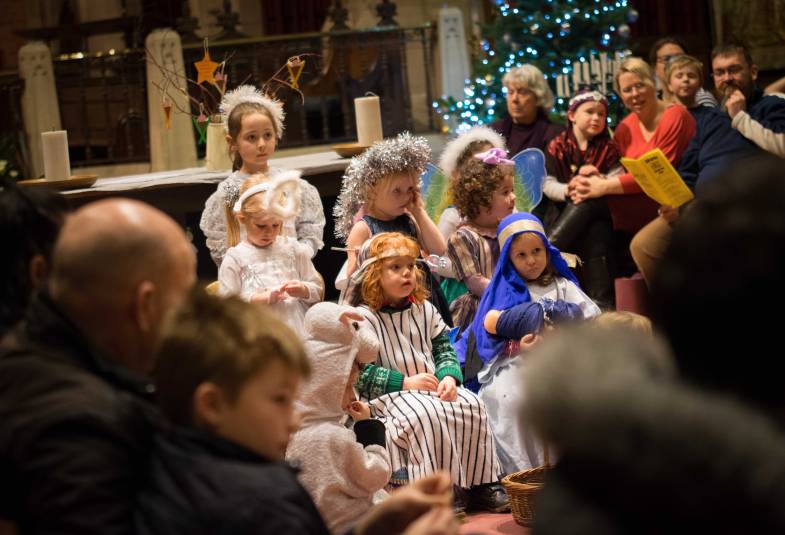14/11/2018

The latest annual Statistics for Mission report shows that while traditional Sunday attendance edged lower in 2017, in line with long-term trends, the numbers attending Christmas services increased by 3.4 per cent to 2.68 million.
It was the fourth successive rise in Christmas congregations since 2013 and the highest figure since 2006. Combined with figures for special services in churches during Advent, including carol services, there were nearly eight million attendances over the festive season.
The Statistics for Mission 2017 were published as #FollowTheStar, the Church of England's campaign to encourage people to attend Advent and Christmas services this year, was launched by the Archbishop of Canterbury, Justin Welby.
Meanwhile separate figures also published today show that the Church of England more than doubled its monthly reach on social media - from 1.2 million in 2017 to 2.44 million this year.
The Church of England’s Advent and Christmas campaign in 2017 was four times bigger than the previous year, with reach rising from 1.5 million to 6.8 million.
And the Church’s Royal Wedding prayer and videos for the Duke and Duchess of Sussex were seen more than five million times on social media.
The figures for 2017 show that average Sunday attendance (measured during October 2017) stood at 756,000, down on the previous year in line with long-term trends. Average weekly attendance over October 2017 stood at 895,000.
But the ‘Worshipping Community’ – a measure of those people who regularly attend church - rose slightly in 2017 to 1.14 million people, of whom 20 per cent were aged under 18 years old.
The Bishop of London, Sarah Mullally, said: “We live in an age of rapid social change affecting all aspects of life - right down to people’s working patterns and how they spend their weekends. It is really striking to see how churches are responding and evolving in the face of that.
“While there’s a downward pattern in Sunday attendance, the fact that Worshipping Community - membership - figures are stable shows that for many people, being part of the Church is more than just a matter of what they do on a Sunday morning.
“We are also reaching more people than ever through social media, providing a Christian presence to those who might not otherwise walk through the door of a church.
“And millions encounter the Church in their daily lives, through its commitment to the most vulnerable from food bank provision to night shelters, lunch clubs and community cafes.”
Notes
- The annual collection of Statistics for Mission is overseen by the Church of England’s Research and Statistics Unit.
- Each of the almost 16,000 churches in the Church of England was asked to report figures including the size of their Worshipping Community, attendance at Sunday and midweek services, attendance at Easter and Christmas, and the numbers of baptisms, marriages, and funerals they carried out during the year. Complete data were received from 88% of churches; where data were missing, values were estimated where possible, based on trends from previous years.
- The Worshipping Community measures the number of people who regularly attend once a month or more. This could include Evensong, or a week day service as well as a Holy Communion service on a Sunday. The Worshipping Community figures have been collected since 2012 and have remained relatively stable over the past four years at around 1.1 million.
- The Mission Statistics do not include services in prisons, hospitals, schools and military chapels and university chaplaincies.
- Statistics for Mission figures in most cases include figures from cathedrals; however, the figures for Advent special services do not include cathedral attendances during this period. Full statistics for cathedrals were published last month.
- The three-year digital transformation includes the launch of the new Church of England and A Church Near You websites by the end of 2017. Both sites are being redeveloped to enable Christians to grow in their faith and help bring new people to faith.
- Reach is defined as the number of people who have seen content on social media. Social media channels include Facebook, Twitter and Instagram.